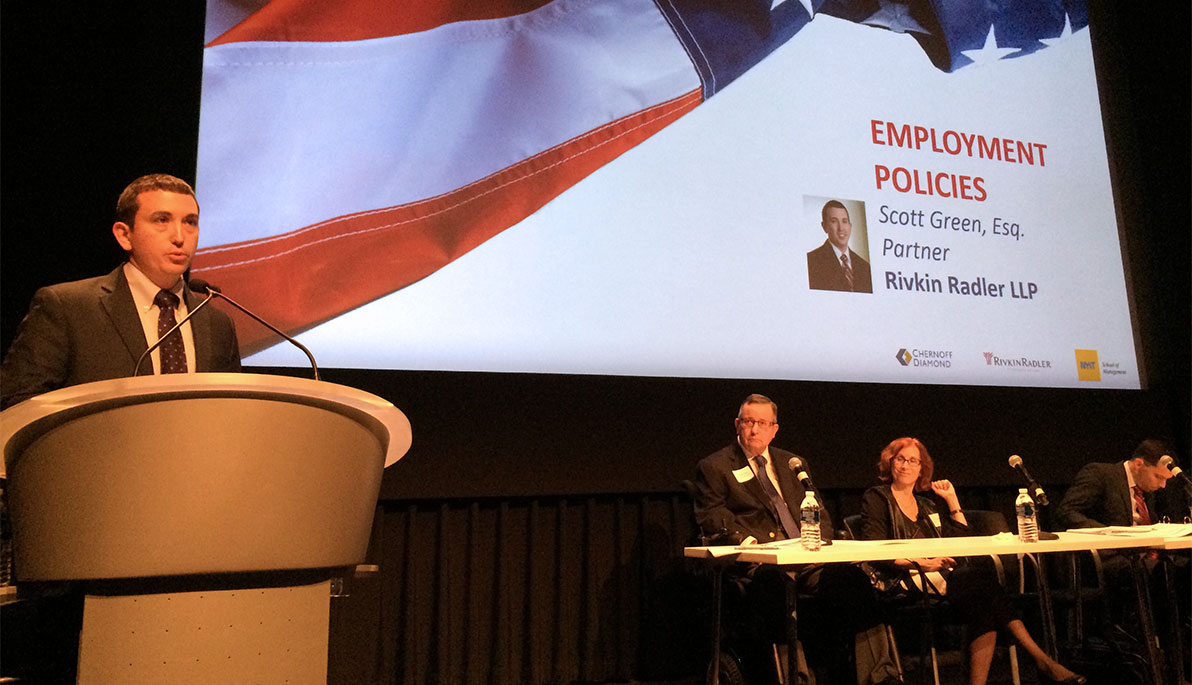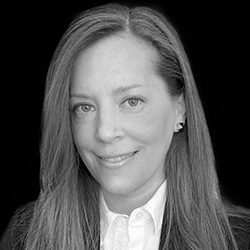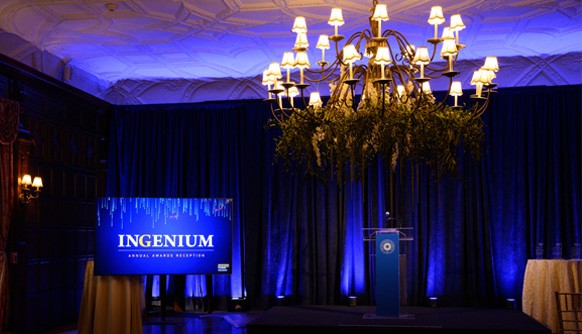News
Preparing for a New President: How Workplace Policies May Change
November 7, 2016
Photo: Scott Green (at podium), Richard Dibble, and Jill Bergman.
As one of the most polarizing elections in U.S. history nears, business leaders are awaiting the outcome so they can prepare for a new president, administration, and Congress. In October, the School of Management Center for Human Resource Studies hosted a conference at NYIT Auditorium on Broadway to examine the contrasting proposals and likely policies of the presidential candidates. Here is a recap of some of the topics discussed:
Brian Silva (M.S. ’89), chief human resources officer for Fresenius Medical Care and president of the board of directors for the Society for Human Resources Management, opened the conference. He highlighted the key challenges that human resources professionals face in today's legislative environment, and how they are well positioned to make an extraordinarily positive and strategic impact by leading their organizations through these challenges. Samantha Halfen (M.S. ’05), human resources director at Heatherwood Luxury Rentals, attended the conference to explore answers to some of those challenges. “Employers today are faced with uncertainty in their compliance strategy,” she said.
Ralph Sepe (B.S. ’97) and Jill Bergman, of the benefits consulting firm Chernoff Diamond, explained how the Affordable Care Act (ACA] has been successful in extending health insurance coverage to 27 million more Americans, but noted that choices are often limited, and costs continue to increase. They described several options for change that might result from the next administration, but also said that both the Clinton and Trump proposals were short on details, especially on how the candidates would pay for those changes. According to Sepe, “What is certain is that quick and decisive action will be required by our next president if the ACA is to remain a viable and sustainable option for the uninsured and all of America.”
Paid family leave, another important topic for both sides of the political spectrum, was also discussed. Scott Green, a partner in the law firm Rivkin Radler, noted that Trump’s current proposal would provide paid leave for mothers but not fathers. And speaking on a matter of particular interest to NYIT’s international students, Henry Mascia, also an attorney with Rivkin Radler, did not foresee that the H-1B visa program, which allows U.S. employers to hire workers with a graduate degree in a specialized field, would be expanded regardless of which candidate is ultimately elected. However, he did point out that its prevailing wage requirements might be raised in the future.
The event was moderated by Richard E. Dibble, Ph.D., director of the Center for Human Resource Studies. He remarked that the attendees, who represented a cross section of New York region employers, left with a better sense of what the election will mean for their businesses, giving them a competitive edge when planning for 2017 and beyond.
See more NYIT School of Management events.



_Thumb.jpg)

